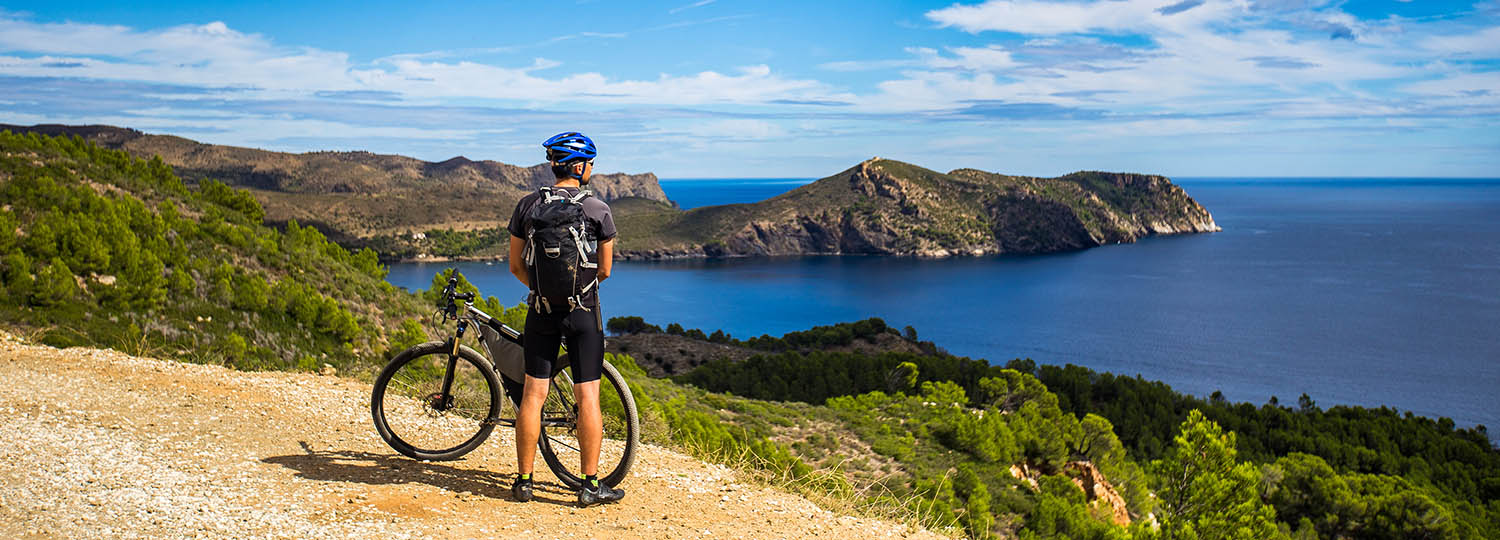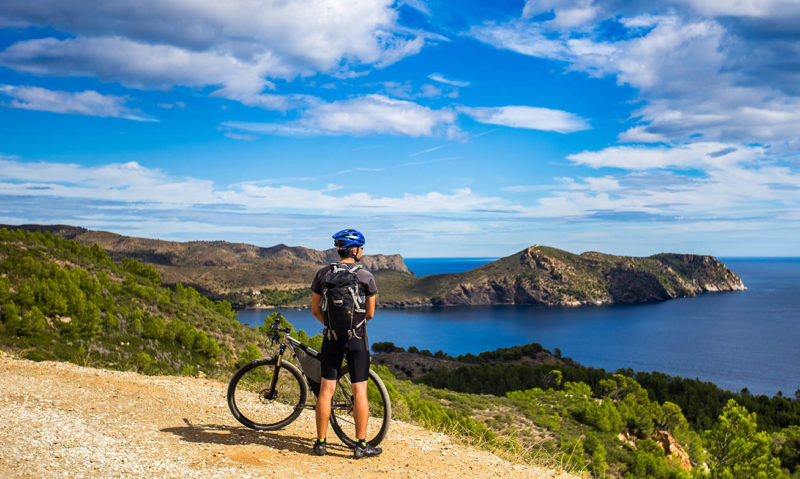

Would you pay more for sustainable tourism?
El turisme sostenible o ecoturisme és el sector turístic amb més creixement mundial i es basa en la preservació d’espais naturals i el desenvolupament sostenible de les comunitats. Els avantatges són múltiples, però estem disposats a pagar més per contribuir-hi?
“Catalunya és un referent en ecoturisme”, les paraules d’Héctor Ceballos-Lascurain, pare de l’ecoturisme, descriuen l’escenari complex, però optimista, que viu aquest sector a Catalunya. Si es du a terme correctament, els beneficis que pot comportar són múltiples i transversals, començant per trencar amb l’estacionalitat i la descentralització turística.
Apostar per la sostenibilitat en cada acció
El primer que cal tenir clar és que qualsevol decisió és susceptible de ser sostenible, des d’escollir un restaurant de quilòmetre zero, prioritzar una cervesa local, anar a comprar al mercat del poble d’estiueig en comptes de grans multinacionals, comprar roba de bany en empreses locals o fins i tot escollir les colònies dels fills, amb propostes com les Ecocolònies de la Fundació Pere Tarrés.
Si desgranem les activitats que duem a terme en períodes vacacionals, trobem que totes tenen una alternativa sostenible. Dur-ho a terme, encara que sigui amb petites accions, pot tenir un gran impacte.
Estem disposats a pagar més per propostes sostenibles?
Gerard Bofill, propietari de Can Buch ECOTurisme, ho té clar: “Seguríssim. Evidentment de forma proporcionada, però la gent té ganes d’experiències autèntiques i naturals”. Les xifres avalen les seves paraules, i ja l’any 2017, l’any internacional del turisme, un estudi de FITUR apuntava que el 83% dels turistes estaven disposats a pagar més per un hotel sostenible, especialment el públic més jove.
Una tendència que s’emmarca en un canvi de consum generalitzat. A Espanya, la despesa anual per càpita en productes ecològics és de 46,6 €, un 10% més que l’any anterior. La tendència és clara, però segueix lluny de països com Dinamarca o Suïssa, on aquesta xifra ascendeix als 312 €.
En l’àmbit mundial, la puixança d’aquesta mena de turisme ha provocat la creació de la Global Ecotourism Network, amb l’objectiu d’impulsar un turisme sostenible que uneixi comunitats. En els anys vinents l’ecoturisme passarà de moure 181 bilions de dòlars el 2019 a gairebé 334 bilions el 2027, segons una previsió de Allied Market Research.
La pandèmia impulsa l’ecoturisme a Catalunya
En els darrers mesos, l’ecoturisme ha augmentat a Catalunya a causa de la pandèmia i les restriccions de mobilitat. En el moment en què van poder obrir, molts allotjaments com Can Buch van notar “molta més demanda i inquietud per viatjar dins del nostre territori, per tornar a entorns rurals”.
I si augmenta la inquietud per conèixer el nostre entorn, creix també l’interès a preservar-lo. Com ha passat al Parc Natural del Delta de l’Ebre, un espai protegit des de 1983 i on s’ha aconseguit crear propostes turístiques de tota mena amb un objectiu comú: preservar el territori i la seva biodiversitat i apostar per la sensibilització ambiental.
Les propostes a Catalunya són múltiples, i un altre exemple són les vies verdes, els itineraris per ciclistes i senderistes que recorren antigues vies de tren. Un exemple que sostenibilitat i economia no estan renyits.
La petjada positiva de l’ecoturisme
L’impacte del turisme en les economies és tan fort que s’inclou en els objectius de desenvolupament sostenible de l’ONU, recollits a l’Agenda 2030. Desenvolupament empresarial, sistema energètic sostenible, donar valor a activitats com l’agricultura o afavorir la diversitat entre territoris. Si es desenvolupa de forma conscient, pot contribuir en el desenvolupament sostenible de molts sectors.
Per Bofill, apostar per aquestes experiències pot servir per “generar corrents ideològics que facin que a poc a poc la gent prengui consciència que les coses es poden fer sempre amb una visió diferent”. Noves formes de turisme comportaran, sens dubte, nous resultats.
Apostar per l’ecoturisme, per tant, pot suposar en alguns casos pagar més per allotjaments, per aliments o per roba, però és una despesa que es reverteix en la societat d’alguna manera o altra. I tu, estàs disposat a pagar per contribuir-hi?
11Onze és la comunitat fintech de Catalunya. Obre un compte descarregant la super app El Canut per Android o iOS. Uneix-te a la revolució!



Pagaria si s’ho val.
Com amb tot, hauríem de veure si realment ho seria i fins a quin punt, i en el cas de veure-ho bé, sí l’augment de preu el trobem, o no, adequat a allò que ens ofereixen. Moltes gràcies pel teu comentari, Pere!!!
Sí, pagaria més si així es garanteix la subsistèncua del Sector amb transparència per davant demostrant que es amb eixa finalitat👌
Sí, cert, però tampoc s’ha de pagar massa més per uns serveis que potser tampoc seran del tot sostenibles. Amb això vull dir que aquí, a Catalunya i Espanya, primer és pagar, i després ja ho veurem… Estem carregats d’Impostos i de polítics que s’omplen les butxaques. Moltes gràcies pel teu comentari, Jordi!!!
Els conceptes “eco”, “sostenibilitat” I ètica es resumeixen en respecte (a la natura i a les PERSONES i honestedat. És tracta de posat en una balança les prioritats de cadascú
Bona reflexió, Mercè, sens dubte el respecte és la clau per avançar, sigui en l’àmbit que sigui. 🙏
Totalment!!!!!!!
Gràcies pel teu comentari, Manuel!😉
👏
Gràcies, Daniela!😉
👍👍👍
Gràcies, Joan!😉
Si, si amb això mantenim el patrimoni i ajudem a la gent
👍👌✌
Si, pagaría més si això servís per ajudar a la gent de la comarca, i entre tots obtenir millors recursos, sense malbaratar la natura
Hola, Mayol. Molt cert, millor pagar una mica més per tenir més recursos i sense haver de malbaratar més del necessari la natura. Moltes gràcies pel teu comentari.
No és necessàriament més car si el que es pretén es passar uns dies integrats amb la gent de la comarca, experimentar. Ho pot ser si es volen vacances mantenint la manera de viure de la resta de l’any. En aquests cas s’ ha d’ entendre que als pobles tenir els mateixos serveis que a la ciutat els és més costós, començant pels sanitaris
Hola, Mercè. Malauradament és així, els costos normalment es reparteixen molt millor com més són utilitzats o són fets servir per un nombre més alt de persones…
Sense cap dubte
👍👌
Si estaria disposada a pagsr més si això implica una millora amb la conservació dels llocs, en l’economia, en la sostenibilitat
Hola, Alícia. Si, sense cap mena de dubte. Moltes gràcies pel teu comentari.